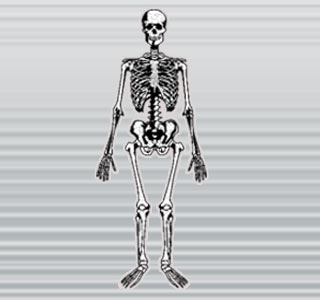
But now a team of researchers have suggested that restraining a particular kind of protein, which regulates the genes linked with immunity and inflammation, may keep a check on bone formation by evading the disabling bone loss. This discovery was jointly made by the researchers from the UCLA School of Dentistry, University of Michigan and the University of California, San Diego.
The National Institutes of Health is believed to have estimated that there may be so many people in the U.S. alone who suffer from either osteoporosis or have low bone mass, which inadvertently increases their risk of getting diseases or broken bones.
The master protein, nuclear factor-kB (NF-kB) is believed to disturb the balance between bone destruction and formation. Through novel bone formation techniques, it is this balance which these investigators aim to restore.
Cun-Yu Wang, holder of UCLA’s No-Hee Park Endowed Chair in the dental school’s division of oral biology and medicine, states that, “Most studies focus on the part that NF-kB plays in the regulation of osteoclasts — bone-resorbing cells. For the past five years, we looked closely at the effect of NF-kB on osteoblasts — bone-forming cells. We knew that NF-kB promoted resorption. What we discovered in our in vitro and in vivo studies is that this protein also inhibits new bone formation, giving us a fuller picture of its role in inflammation and immune responses.â€
These researchers have also stated that at present there may be certain treatments which may prevent any further bone loss but they may not increase bone mass. However the findings of this research indicate that the use of a drug which prevents the function of NF-kB may prove to be very helpful for this criterion.
This research paper was published online on the Nature Medicine journal.
